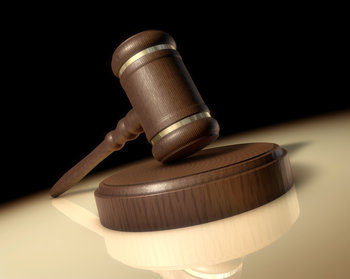
In this article, we will discuss the trademark dispute between a collection of Greek fraternal organizations and Thomas Kenneth Abraham, a vendor of items bearing the logos of said organizations. The purpose of this case study is to demonstrate the importance of proactive and timely enforcement of trademark rights. In addition, the study will mention appropriate milestones for trademark enforcement.
A trademark or servicemark is defined as “any word, name, symbol, device, or any combination, used or intended to be used to identify and distinguish the goods/services of one seller or provider from those of others, and to indicate the source of the goods/services,” according to the United States Patent and Trademark Office. Punctuality of enforcement is essential to successful defense of trademarks, which is why the time line of the following events bears such weight in the dispute.
Who Is Involved:
The dispute involves Thomas Kenneth Abraham, the world’s largest manufacturer of Greek paddles and decals, and a collection of 32 Greek fraternities and sororities, whose licensing facilities are adversely affected by the infringement.
What Is the Issue:
Greek organizations’ licensing programs present opportunities to commercially benefit from issuance of permission to display crests and logos on approved products. Abraham’s business represents a large section of the market for fraternity and sorority paddles, for which Greek licensing programs would normally issue or deny permissions. However, Abraham’s manufacture of such products began three decades prior to the issuance of communications by licensing organizations, representing a potentially prejudicial situation for the infringer.
What Is the Argument:
At first blush, Abraham’s manufacture of infringing products represents an obvious violation of trademark. However, the time elapsed between infringement and litigation plays a large part in the argument. Abraham began the manufacture of products related to Greek organizations in 1961. He did not, however, start receiving cease-and-desist letters from the infringed parties until 1990—31 years after violation began. The conversations between the Greek organizations and Abraham did not escalate into litigation until 17 years after this communication began.
Due to the passage of time and presentation of milestones of infringement that went unpunished, Abraham leveraged an argument of laches. Laches is a doctrine that infringing parties may assert when trademark owners fail to enforce trademarks with no justifiable basis for doing so. In particular, the argument must prove that the delay in enforcement prejudices the infringer. In this case, spending millions of dollars developing a business prior to trademark litigation presents a situation in which Abraham stood to be badly prejudiced by the proceedings.
Greek organizations counter-argued that Abraham’s laches defense held no water, due to the fact that he acted with “unclean hands”. This term suggests that the business purposely acted to deceive consumers about the association between the Greek organizations and Abraham’s company.
What Is At Stake:
Both parties had a distinct commercial interest in the decision. With a large share of the Greek fraternity and sorority paddle market in hand, Abraham’s company stood to be adversely affected by losing the ability to print logos and crests on products. In addition, with millions of dollars invested in building a commerce platform for sale of such products, along with the time spent developing the products and site, the potential damage extended beyond lost sales and threatened the value of extensive investments. Greek licensing organizations on the other hand stood to lose out on extensive royalties from the products sold.
What Was Decided:
Abraham’s defense held tight through the first round of litigation. The Fifth Circuit court rejected the claim of unclean hands on the basis that Abraham’s company established the market for sorority and fraternity paddles long before the existence of the Greek licensing organizations. In addition, the court ruled that Abraham in no way attempted to deceive consumers regarding the connection between his company and the Greek organizations featured on their products.
The decision created an implied and revocable trademark license that prevented monetary damages, but not injunctive action. The injunctive action would then be determined based on the degree to which the trademark owners’ delay prejudiced the infringing party. The court took stock of Abraham’s equities and enjoined most of his infringing products, but permitted his sale of decals of Greek organizations’ crests, the latter representing the overwhelming majority of the company’s sales.
Unsatisfied with the outcome, Greek organizations appealed on the basis that the court’s injunction did not go far enough. They employed the doctrine of progressive encroachment, which gives trademark owners the right to delay action until such time as the infringement is deemed to cause increased or more imminent potential harm to the owner. The Fifth Circuit rejected this claim, citing multiple milestones in the development of Abraham’s business that represented progressive encroachment, including the building of and sale through the company’s website.
Cases like this demonstrate the need for trademark holders to take a proactive approach to monitoring and enforcing trademarks. Owners are not required to immediately enforce their trademarks, however failure to enforce may lead to weakened brand association and loss of legal recourse. Methods of monitoring include employment of professional monitoring agencies and requesting that customers, contractors, and licensees report potential infringement. Identification should then be followed by enforcement, which may include injunction, payment of damages, or coexistence agreements. Evaluate your budget when determining what monitoring services best suit your organization and consider the legal costs of possible legal actions when monitoring uncovers infringement.

